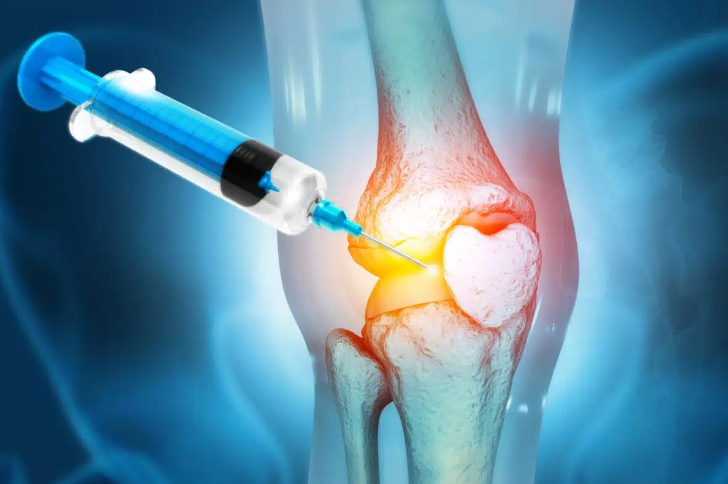
Getting a cortisone shot for knee arthritis might provide quick pain relief, but new research reveals a troubling association: those steroid injections may be linked to faster joint damage over time. A surprising study found that patients who received corticosteroid injections showed more signs of arthritis progression compared to those who got no treatment at all, or even a different type of injection.
The findings raise important questions about a common medical practice. More than 10% of knee arthritis patients receive these steroid shots, yet the study suggests they may be trading short-term comfort for potential long-term harm. By contrast, patients who received hyaluronic acid injections — a gel-like lubricant for joints — not only avoided signs of worsening arthritis, but actually showed reduced disease progression on MRI scans.
How Researchers Conducted the Investigation
The study, published in Radiology, analyzed data from 210 people participating in the Osteoarthritis Initiative, a large-scale project tracking Americans with knee problems from 2004 to 2015. The average participant was 64 years old, and around 60% were women—characteristics typical of the knee arthritis population.
What set this study apart was its use of detailed MRI scans to assess joint health. Researchers evaluated images from two years before the injection, at the time of injection, and again two years afterward using the Whole-Organ MRI Score (WORMS). This scoring system provides a comprehensive assessment of cartilage, bone marrow, meniscus, ligaments, and joint effusion.
Participants were grouped into three categories: 44 received corticosteroid injections, 26 received hyaluronic acid, and 140 were matched controls who had no injections. The control group was carefully selected using propensity-score matching to ensure they were comparable in age, sex, body mass index, arthritis severity, pain levels, and physical activity.
Clear Differences Emerged Between Treatments
Those who received steroid injections showed significantly more arthritis progression than both the control group and the hyaluronic acid group. The researchers found clear statistical evidence that steroid shots were linked to faster joint deterioration. The damage was especially evident in cartilage—the smooth tissue that cushions the knee joint.
By contrast, hyaluronic acid injections appeared to slow down arthritis progression. Patients in this group actually showed less joint damage after their injection compared to before they received it, suggesting these treatments may help protect the joint structure.
Both types of injections helped with pain relief. Steroid shots provided more dramatic pain reduction — cutting pain scores roughly in half — while hyaluronic acid injections offered more modest but still meaningful pain relief. However, only steroid shots came with the concerning side effect of potentially faster joint deterioration.
MRI images helped visualize the contrast. In a 58-year-old woman who received a steroid injection, follow-up scans showed new full-thickness cartilage lesions and bone marrow damage. In a 57-year-old man who received hyaluronic acid, the same cartilage remained intact and unchanged over four years.
What This Means for Your Healthcare Decisions
These findings don’t mean patients should avoid knee injections altogether. Managing arthritis pain is important for maintaining mobility and quality of life. But the results highlight the need for deeper conversations between patients and healthcare providers about treatment trade-offs.
Current guidelines from the American Academy of Orthopaedic Surgeons moderately recommend corticosteroids for short-term pain relief and advise against the routine use of hyaluronic acid. The new study doesn’t overturn those guidelines, but it suggests they may merit reevaluation if future research supports these results.
Importantly, this study cannot prove that steroid injections directly cause faster arthritis progression. It was observational in nature, meaning that unmeasured differences between patients could account for some of the outcomes. Still, the consistent patterns seen on MRI raise important questions that warrant further investigation in randomized controlled trials.
For the millions of Americans living with knee arthritis, this study offers both a note of caution and a reason for hope. Cortisone shots may still help with intense pain episodes, but patients should understand the potential risks to long-term joint health. Meanwhile, hyaluronic acid injections, often overlooked, may offer pain relief without the same structural downsides.
“This study could lead to more judicious use of corticosteroid injections, especially for patients with mild to moderate osteoarthritis who are not yet surgical candidates,” said lead author Dr. Upasana Upadhyay Bharadwaj, who was a research fellow in the Department of Radiology at University of California, San Francisco, at the time of the research, in a statement.
Source : https://studyfinds.org/knee-injections-make-arthritis-worse/







